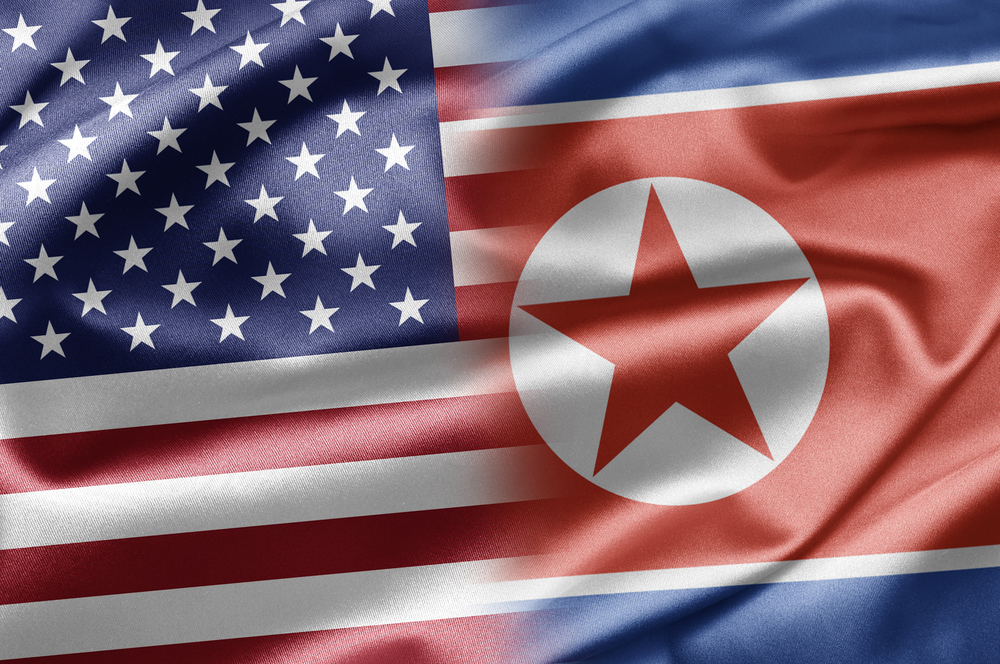American News
Despite Trump lobby, only ‘some’ leaders condemn Pyongyang

The Trump administration has been pushing foreign countries to reduce economic, diplomatic and other ties to Pyongyang in an effort to further isolate the country and bring it back to the negotiating table. (Shutterstock photo)
MANILA, Philippines — Despite President Donald Trump’s lobby for stronger punitive actions against North Korea, only “some” Asia-Pacific leaders condemned Pyongyang’s development of nuclear weapons and ballistic missiles when they gathered for an annual summit in Manila last week.
A statement issued belatedly by Philippine President Rodrigo Duterte on Tuesday on behalf of 18 world leaders, including Trump, at the East Asia Summit said they expressed serious concern over the escalation of tensions on the Korean Peninsula, “while some condemned the ongoing development of nuclear weapons and ballistic missile technologies” by North Korea.
The North’s efforts to develop its nuclear weapons and missiles “are in contravention of United Nations Security Council resolutions and … threaten regional and international peace and stability,” said the statement, which was posted on the website of the Association of Southeast Asian Nations, a 10-nation bloc that comprises the bulk of the East Asia Summit’s member states.
All the leaders agreed in the rest of their statement on North Korea, mostly reiterations of previous calls for Pyongyang to adhere to U.N. Security Council resolutions and for it to take steps to return to denuclearizatoin talks.
“We reaffirmed the importance of peace and security in the region and reiterated support for the complete, verifiable and irreversible (denuclearization) of the Korean Peninsula in a peaceful manner,” the EAS statement said.
Trump attended the ASEAN summit in Manila, the last stop on his five-nation Asia swing, but skipped the expanded gathering with other leaders at the East Asia Summit, where he was represented by U.
S. Secretary of State Rex Tillerson.
Ahead of the ASEAN and EAS summits in Manila, the Trump administration lobbied for more joint punitive actions against Pyongyang, including diplomatic sanctions. China, which is also an influential EAS member, however, has called for dialogue with North Korea and urged the U.S. to tone down its rhetoric.
In August, Tillerson met his Australian and Japanese counterparts on the sidelines of an annual ASEAN ministerial meeting in Manila where they “condemned in the strongest terms North Korea’s unlawful pursuit of a nuclear weapons program and unprecedented ballistic missile activity since last year,” citing Pyongyang’s launching of intercontinental ballistic missiles on July 4 and July 28.
Trump announced Monday that the U.S. is putting North Korea’s “murderous regime” on America’s terrorism blacklist, saying the designation as a state sponsor of terror is long overdue. He promised a new wave of sanctions as part of a “maximum pressure campaign” over North Korea’s development of nuclear weapons.
The North had been designated as such for two decades until 2008, when it was removed in a bid to salvage international talks aimed at halting its nuclear efforts. The talks collapsed soon after.
The Trump administration has been pushing foreign countries to reduce economic, diplomatic and other ties to Pyongyang in an effort to further isolate the country and bring it back to the negotiating table.
——
Associated Press writer Teresa Cerojano contributed to this report.





















